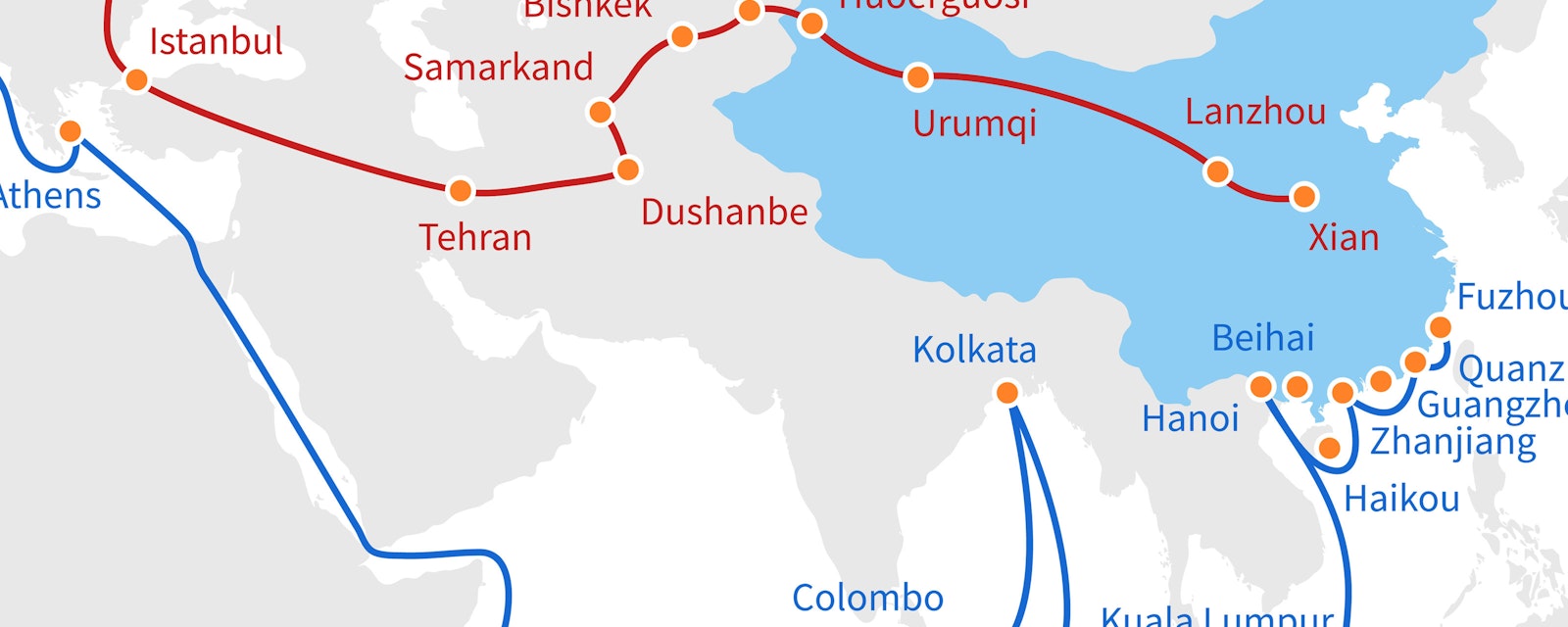The Abe government is developing a policy to support Japanese companies collaborating with Chinese companies on Belt-and-Road Initiative (BRI) projects. If projects satisfy certain conditions regarding transparency, financial sustainability, and purely civilian value, firms will be eligible to receive support from the Japan Bank for International Cooperation (JBIC) and other public financial institutions.
While corporate Japan has encouraged the Abe administration to participate, the government’s emerging strategy is likely driven as much by geopolitical considerations as by commercial interests. The government is not only focused on putting Japan-China relations on more stable footing, but also recognizes that, with the US less engaged economically in Asia, Japan may have to accommodate itself to China’s initiatives, particularly when it comes to promoting the development of the region’s middle-income countries. Economic cooperation through the BRI is therefore part of the broader reorientation of Japan’s foreign economic policy that has occurred since the US withdrew from the Trans-Pacific Partnership (TPP).
The timing of the Abe government’s decision to outline a policy of supporting private-sector participation in BRI projects is strongly influenced by the Abe administration’s determination to improve the Japan-China relationship in 2018 as the two countries mark the fortieth anniversary of the resumption of diplomatic relations. Beginning with a high-level delegation to China’s Belt and Road Forum in May 2017, the Abe administration has worked to stabilize the bilateral relationship and to find constructive areas of cooperation. Tokyo and Beijing have been working to schedule reciprocal visits by Abe to China and Chinese President Xi Jinping to Japan over the next year. Japanese cooperation with the BRI as part of the broader pursuit of bilateral economic cooperation could be the most significant addition to a joint statement that could be issued to mark the anniversary.
But the shift by the Abe government is also part of Tokyo’s response to the US withdrawal from TPP. Japan had worked closely with the US to oppose the Asian Infrastructure Investment Bank (AIIB), one of the funding vehicles for the BRI, and of course worked with the US to develop TPP as a means of promoting the development of middle-income Asian countries. The US withdrawal from TPP pulled the plug on the major US-Japan initiative for promoting regional development, while the Trump administration’s downgrading of development assistance as a foreign policy priority means that Tokyo cannot look to Washington for help countering China’s initiatives. In short, the Abe administration has come to recognize that, for now, there is no alternative to Chinese leadership in regional development. Japan and its firms can either participate and try to shape the BRI on the margins, or they can stay out and lose ground and influence to China.
This fear of falling behind likely explains why corporate Japan, particularly the leading business federation Keidanren, has pushed the Abe government to embrace the BRI. Keidanren chairman Sadayuki Sakakibara attended the Belt and Road Forum at the invitation of the Chinese government, and has repeatedly called upon the Abe government to use the 2018 anniversary as an opportunity to bring Japan into the initiative. Given the restrictions on what projects Japanese public finance will support, however, it is unclear just how extensive and how profitable Japanese participation will be.





